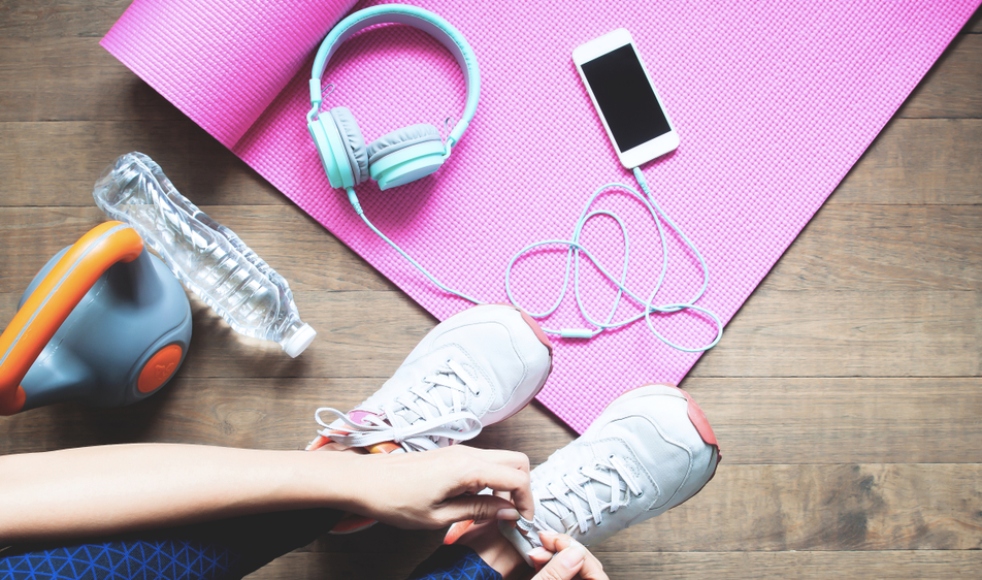With gyms, parks and trails closed, researchers tap the public to develop new exercise strategies for coping with pandemic stress

Photo by Shutterstock/SUPREEYA-ANON
BY Michelle Donovan
April 29, 2020
Researchers at McMaster University are developing exercise protocols to help combat the anxiety and mental stress brought on by social isolation, physical distancing and the uncertainty of the COVID-19 pandemic.
“The pandemic is expected to amplify psychological distress, which can quickly deteriorate into mental illness, even in people without a prior diagnosis,” says Jennifer Heisz, director of McMaster’s NeuroFit lab and an associate professor in the Department of Kinesiology.
“In any given year, one in five people experience a mental illness. This year those numbers could climb much higher,” she says.
Previous research conducted in Heisz’s lab found just six weeks of chronic psychological stress can lead to symptoms of depression.
“We are nearing the six-week point and will likely see a surge in stress-induced mental illness that will only worsen as the pandemic continues and its timeline remains fluid and uncertain,” says Heisz.
Physical distancing has already created unique barriers to being active. The abrupt closure of gyms and recreational facilities, coupled with restricted access to public parks and trails, has made it much more difficult to exercise.
With the closure of daycares and schools, parents face the added challenge of providing childcare during work hours, making it even more difficult to be sufficiently active for the maintenance of good health, say researchers.
While earlier research from Heisz and others shows that about 30 minutes of aerobic exercise three times weekly can boost mood, reduce psychological distress and decrease symptoms of depression and anxiety relative to those who are sedentary, most people find it difficult to get recommended levels of activity under normal circumstances.
Researchers plan to survey study participants in the coming weeks, analyse their current mental health status and pinpoint barriers preventing them from regular physical activity during the pandemic.
That information will then be used to create an evidence-based physical activity toolkit, free to the public by July For more information or to complete the survey, please visit: http://neurofitlab.ca/covid-19.html


